Columns
The Noise Beneath The Apple: Street Performing and the First Amendment
Calvin Klein suit ironed, umbrella in hand, I boarded the R Train and made the twenty minute ride from Brooklyn to midtown Manhattan. I was spry. I was well versed. I was special—as evidenced by my court summons, officially stamped by the NYPD and not one, but two automated voice mail messages reminding me of my mandatory appearance in New York City court.
Failure to appear would result in a warrant for my arrest. I surmised that the City of New York was serious.
And then, I got off the R Train.
At first, I thought Hendrix had come back from the dead. I’d miss court and go to jail for that. But as I neared, I saw familiar faces; faces who, I shudder to think, may not listen to Hendrix.
There was Claude, an old man of about 150 who has lived his entire life in New York. He paints scenes from his history on tin cans and dilapidated wood, and then sells them from his rickety table—which was probably made somewhere about the same time he was. Then there’s Simon, an entrepreneurial kid from Queens who has an affinity for the pigeons of New York. He carefully pencils these birds as they perch on the Brooklyn Bridge or rest on the stoplights.
A line of over 200 hardened criminals laced around the block that houses the midtown court. There’s the poets and the musicians, the painters and the singers, the sculptors and me: The Obama Condom Lady.
I didn’t feel so special anymore.
We all had one thing in common. We were First Amendment Rights Vendors. Actually, we had two things in common—we had all been arrested.
The First Amendment is not nearly as complex as we make it. It’s only 45 words (primarily written by James Madison). The instruction manual for Tylenol is longer than that.
“Congress shall make no law respecting an establishment of religion or prohibiting the free exercise thereof; or abridging the freedom of speech, or of the press, or the right of people peaceably to assemble, and to petition the government for a redress of grievances.”
The Bill of Rights, which consists of ten amendments, was meant to set the tone between the government and the citizenry. The idea was that civil liberties would be as important as the rights of the governing body. But those 45 words have set the stage for riots, lawsuits and major drama throughout most of our country’s history.
What do the words mean? Allegedly, there will not be a religion established by the government. You can worship, or not, as you choose. It appears you have the right to free speech; artistic, literary, musical, political, religious and commercial. It would seem you have the right to assemble, protest and lobby, and you have the right to ‘redress’ (ask the government to fix stuff).
What was James thinking? There is way too much room for interpretation. Seriously, we can’t have free speech and artistic expression just happening anywhere. That would be anarchy. So, to further crystallize what free speech is and what it is not—where it can occur and where it cannot—legislation ensued and ensued and ensued some more.
And I have to wonder if that First Amendment is lining someone’s pigeon cage right now?
Finally, in 1996, a federal court stepped in and told the City of New York, to lay off, ruling that, “Art may be sold on the street without a license.” (Bery v. City of New York, 97 F.3d 689 (2d Cir. 1996). Then, in 1999, a judge ruled that New York City busking permit schemes were too complex and difficult to obtain, and that the costs were unreasonably high. (Turly V. NYC, US 2nd Cir Appeal 98-7114). And according to Attorney Ginger McKnight Chavers, “The law is pretty clear on this issue. Artists have a First Amendment Right to express themselves and even sell their work and the Federal Courts have actually told New York City that they can’t arrest artists for expressing themselves.” That was in 2009.
So why do artists continue to be arrested?
On my first arrest, I was the fourth person ‘picked up’. My arresting officers sat in the front of the van, eating hot dogs from the corner stand, evaluating a white piece of paper. They did some second grade math and deduced that they needed seven arrests before they could return to the precinct.
I watched and listened as they looked around Union Square, did a bit more analyzing then decided to, “Grab the Black guy, that Asian kid and the painter.”
This is how I met Claude, Simon and a man from India who spoke little English.
We recognize this term as quota. But quota is illegal. Or is it? The Latin ‘quota pars’ was used in 1668 and refers to contributions of soldiers for supplies levied from a town or a district. It was not only a form of taxation, but also a means by which to measure productivity.
Certainly, we’ve advanced beyond that?
Mountains of evidence would suggest we have not.
According to the Street Vendor Project/Urban Justice Center, the city of Manhattan adjudicates over 30,000 vending violations annually. Average fine is $1000.00.
In June 2005, MSNBC reported that New York City police department used a quota system. In this story, two police sergeants said they were assigned quotas and their supervisor admitted to writing a memo to this effect.
In 2010, Police Spokesman Paul Browne told the New York Times that, “Police officers, like others who receive compensation, are provided productivity goals, and they are expected to work.”
And in May 2010, The Village Voice began running an expose called The NYPD tapes, in which eight year police veteran Adrian Schoolcraft spent two years secretly recording the myriad of daily activities in his home precinct. On this tape, daily quotas and productivity reports, which directly translate to job security, are a prevalent and recurring theme.
There is a loophole and it exists within the police sanctioned definition of quota or productivity—whichever term you are most at ease with—and we can hear it echoed on The NYPD tapes.
“Quota is illegal if there is a punishment attached to it…”
The District Attorney will not prosecute First Amendment Rights cases. They will be thrown out. Hence, no punishment.
The NYPD reach the arbitrary number on the productivity report, and the artist, the political prophesier, will not be punished. No law has been broken. Fines are levied. Retribution structures are constructed.
Is it win/win, institutionalized harassment or mobile tax collection?
This only explains the “why?” of the arrests, and only to a degree. But I will save these discussions for later.
After my third arrest, I accepted the fact that I could not remain on the streets, generating an income, with or without a license, political or not. I readily admit that I am not cut from the orange colored cloth of New York City Jail.
I quit.
And then I met Theo Eastwind, baker turned busker. Piercing blue eyes, razor sharp wit and words dripping with passion; his music accolades are numerous and his arrest record reads better than most Hollywood movies.
He has become the undisputed Abbie Hoffman of the Underground, consistently and continuously bringing the street performers controversy to the forefront of media and policy makers’ attention. He has been likened to Jeff Buckley, Sting and David Gray and recorded his entire fifth album, King of The Underground, on the ‘controversial’ subway platform.
Theo has been playing the New York City subways for 13 years and has been arrested, ticketed and jailed, all while standing under the ‘protection’ of the MUNY banner. Why? For performing too loudly, or for performing in the wrong place, or for ‘singing instead of speaking’ his art.
“As an artist, everything I write I own, therefore it is my intellectual property,” he explains. “As it is right now, the cops will give you a ticket for illegal vendoring. But I’m not a vendor, I’m an artist. And one time a cop says to me, well, ‘You’re not speaking, you’re singing’.”
It is Theo who has encouraged the countless hours of digging through the bureaucratic minutiae that defines busking in New York City and inspires me to bring you the stories of the people in the underground.
Even though I myself am not on the streets anymore, I can only hope that English author Edward Bulwer-Lytton, was right; ‘the pen is mightier than the sword’.
And if you were wondering what happened to the ‘you were singing instead of speaking’ case, it was thrown out.
- Lists13 years ago
Top 10 Country Music Albums of 2010
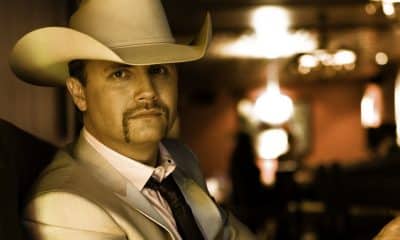
 Interviews5 years ago
Interviews5 years agoJohn Rich – The Interview
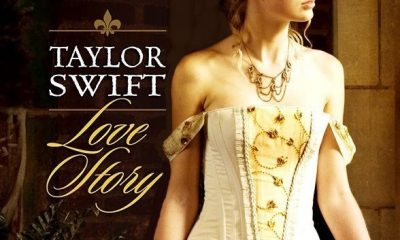
 Song Reviews16 years ago
Song Reviews16 years agoTaylor Swift – “Love Story”

 Interviews5 years ago
Interviews5 years agoHoneyhoney on Hiatus: Revisit our 2008 Interview with Suzanne Santo
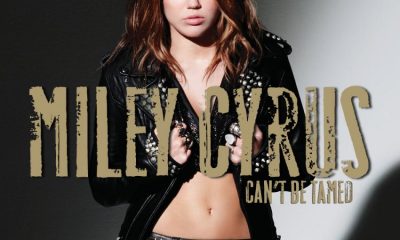
 Album Reviews14 years ago
Album Reviews14 years agoAlbum Review: Miley Cyrus – Can’t Be Tamed
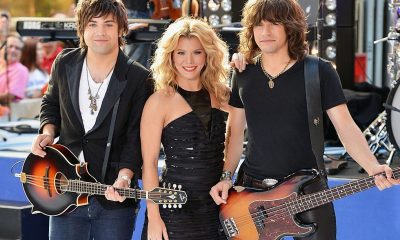
 Song Reviews6 years ago
Song Reviews6 years agoThe Band Perry – “Hip To My Heart”

 Columns5 years ago
Columns5 years agoThe Link Between Folk Music’s Past and Present
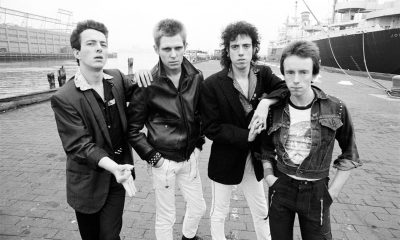
 Columns5 years ago
Columns5 years agoIs Marketing Killing Rock and Roll?

